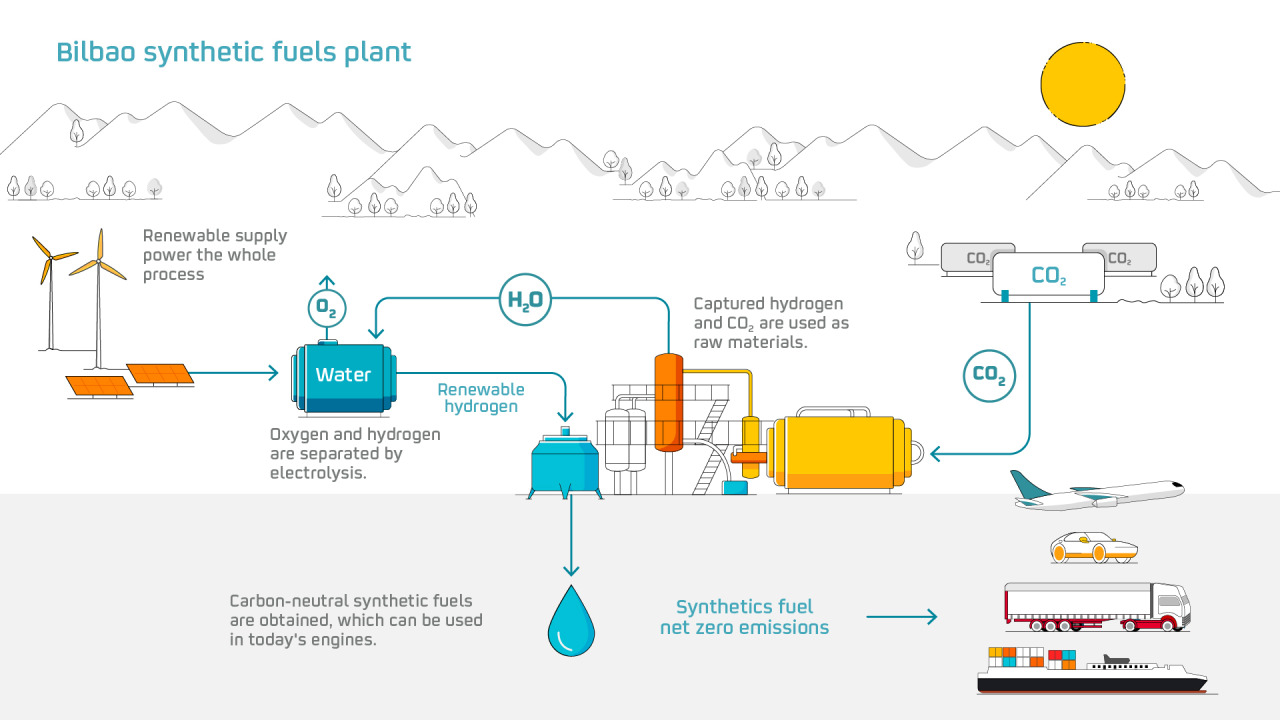Solutions for low-emissions mobility
Solutions for low-emissions mobility
Synthetic fuels or e-fuels are a promising solution for sustainable mobility. Produced from sources such as hydrogen and carbon dioxide, they offer a cleaner alternative to traditional fossil fuels. Their use in vehicles can reduce greenhouse gas emissions.

